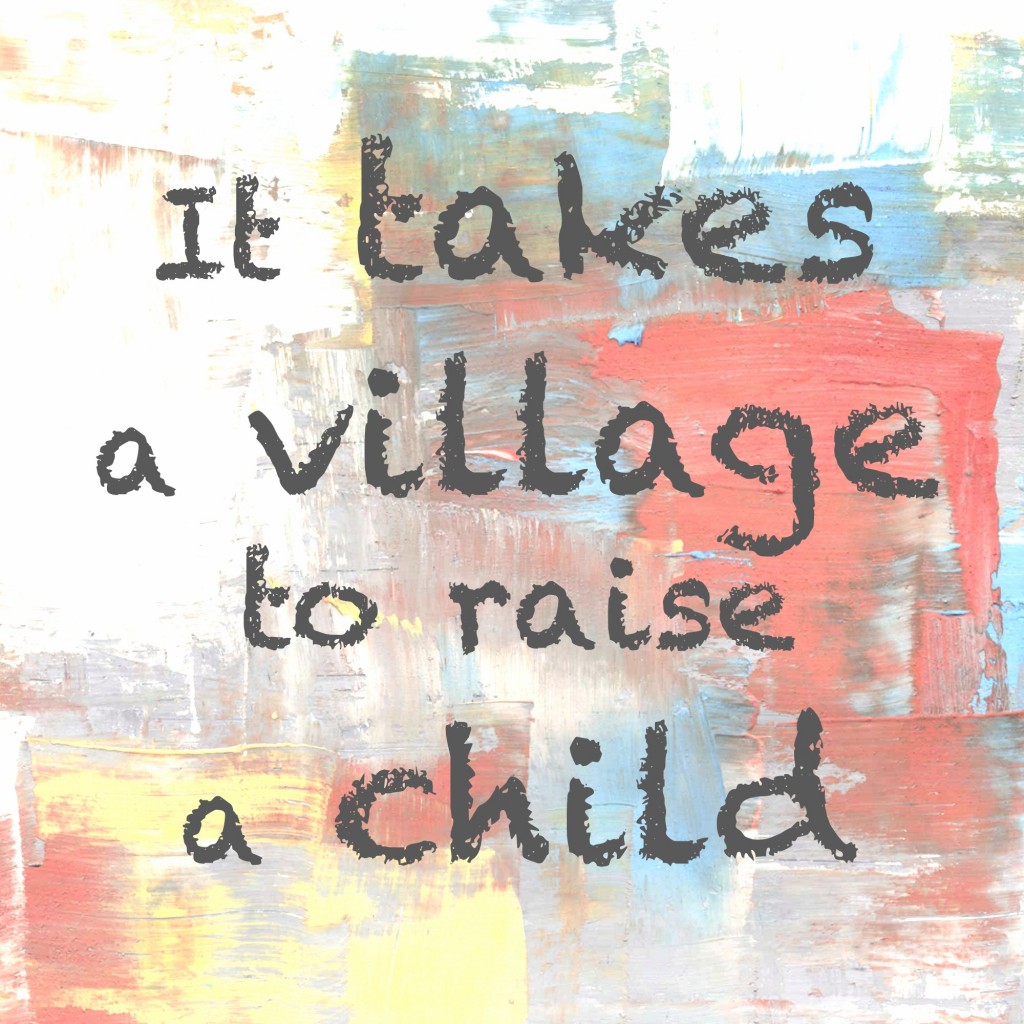I’ve noticed a lot of people these days lamenting the loss of the “village” in parenting. In the past, women banded together to help each other; the newbies had built-in mentors to lean on for help or advice. But today, extended families are scattered, so mothers, grandmothers, sisters, and aunts are no longer readily available to help. Peers are pulled in so many different directions that it’s hard for moms to maintain close, cooperative friendships.
And if you add the special needs aspect to that dynamic…forget about it.
Like there is no manual for the special needs parenting gig, there’s no village, either. Most new moms with a child with special needs don’t have a mom or a sister or an aunt or a grandmother or a best friend who’s navigated an IEP or knows much about Early Intervention, developmental pediatricians, therapy, or any of the other things we special needs moms have to know.
Even worse, many grandparents actively thwart the parent’s efforts, intentionally or not. Many parents have reported to me how their own parent declared that their young child was “just a little delayed” or that there was nothing to worry about when in fact there was a LOT to worry about.
These parents have shared with me that sometimes grandparents don’t want to accept a diagnosis. I don’t know if it’s because they have a hard time overcoming their disappointment, or because they only see the child in small doses so they don’t always recognize the issues, but it happens.
But making it through the early years doesn’t mean you’re out of the woods.
Many of my friends with children around Sarah Kate’s age are expressing frustration with common tween issues – bad attitudes, a wish for more independence without showing the necessary responsibility to deserve that freedom, hormonal fluctuations, and the like. They want their kids to take ownership of their lives now, while they’re still able to gently guide their choices.
In some ways, I’m just like them, because I have the same concerns about Sarah Kate. But I don’t just need her to take responsibility for getting her homework done; I need her to take responsibility for stretching her legs and doing her exercises, because if she doesn’t, everything we’ve done this year will have been for naught.
The clock is ticking, and the consequences are much greater than a minus point in a folder or a zero on a homework assignment. So once again I’m navigating uncharted waters.


Intriguing post…. But I’m not sure I agree. Sure, most of our moms, aunts, big sisters, and grandmas never went through what we have. Sure, our “potential” village might not be face-to-face, someone truly helping us raise our child by giving them hands-on care or attention. But, there is whole lot of support out there for those that want it. Countless Facebook page support groups that are micro-specific to your child’s needs/disability. Countless fabulous blogs (like this one!) that share stories, support, and inspiration. Some may even have access to “in real life” support groups through schools, large worship centers, and community. Sometimes, it just takes connecting to that one person (maybe in real life, maybe not) that can come along side us and be a guide/mentor/village for us. So, please don’t discount the small supports. They truly make a difference! In the end, yes, it always falls on our shoulders to do the parenting, the caring, the endless “extra stuff” required by having a special needs child. But, lean on those around you. I bet they want to help more than you know. <3
I’m with Kerith, all you need to do is reach out to other people. I have a son Noah who has spina bifida, clubfoot, unstable hips and neurogenic bladder. I found that connecting with other spina bifida moms helped me cope.
I don’t mean to discount the value of the online community – obviously, I have embraced it 🙂 and I’m incredibly thankful for it, as I know that so many special needs parents who came before me didn’t have access to so much information and so many people who travel in this life. Perhaps I should have given a nod to this fact.
Having said that, and as much as I appreciate online relationships, they don’t provide the depth of assistance and understanding that a true local village could, and that’s the point I was trying to make with this post. Every local community is different, and while there are many similarities in the whats, hows, and wheres from community to community, only the people who specifically live in my community know what it’s like HERE.